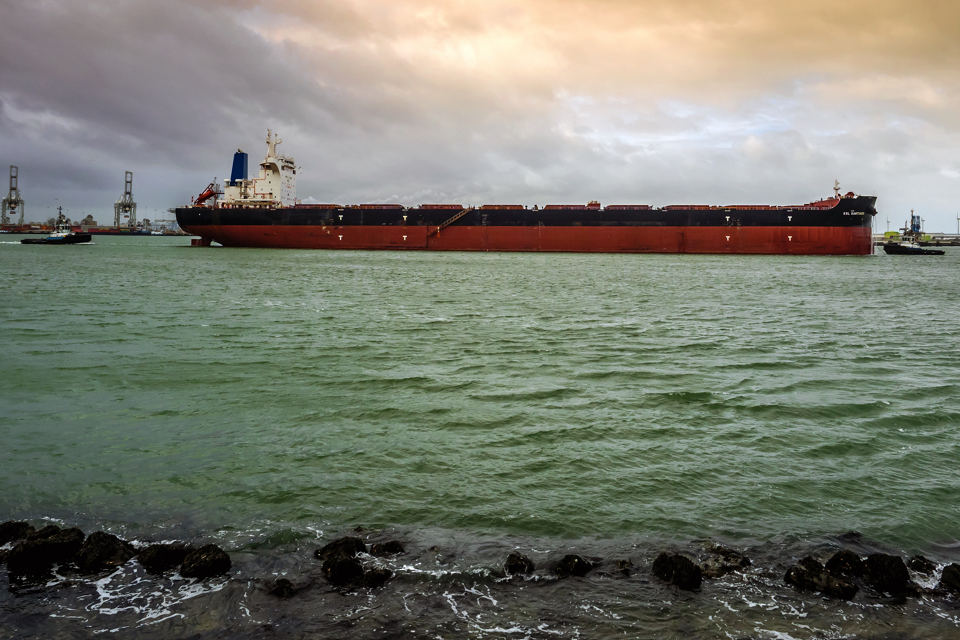Nearly half of all new bulk carriers coming into service this year are equipped with exhaust gas treatment, better known as a scrubber. This allows them to continue operating on traditional, high sulphur fuel oil.
This was reported by BIMCO, the largest representative of interests in bulk shipping. The largest ships with a carrying capacity of 150,000 tonnes or more almost all have one. Of the new small dry bulk carriers, so-called handymax and handysize ships, only 34 and four per cent respectively are equipped with such an installation.
Competitive advantage
According to BIMCO, capesize bulk carriers, which are too big for the Suez Canal, have a competitive advantage with a scrubber on ships without one because on average, they are being chartered at higher spot rates. According to the organisation, the difference was 27 per cent, an average of USD 2818 a day.
This means that they can recoup the investment of several millions in exhaust gas treatment in a few years because high sulphur fuel oil (IF380) is also a lot cheaper than low sulphur fuel oil (VLSFO). According to Bimco, the average price difference this year was around USD 70 per tonne, around twenty per cent. Since the beginning of November, the prices of both fuels have been rising sharply again.
Open loop
The question is whether the scrubber system is sustainable in the long term. More and more people are calling for open loop scrubbers to be banned because they discharge the waste products from the exhaust fumes into the sea. Closed loop scrubbers do not do this, but only make up a fraction of the total number. They store the waste, which then has to be delivered to ports. Last month, the European Parliament’s Committee on the Environment, Public Health and Consumer Policy called for open scrubbers to be abolished in due course.
This article first appeared in Dutch on Nieuwsblad Transport, a publication of SWZ|Maritime’s publishing partner Promedia.
Picture by Frans Berkelaar.








